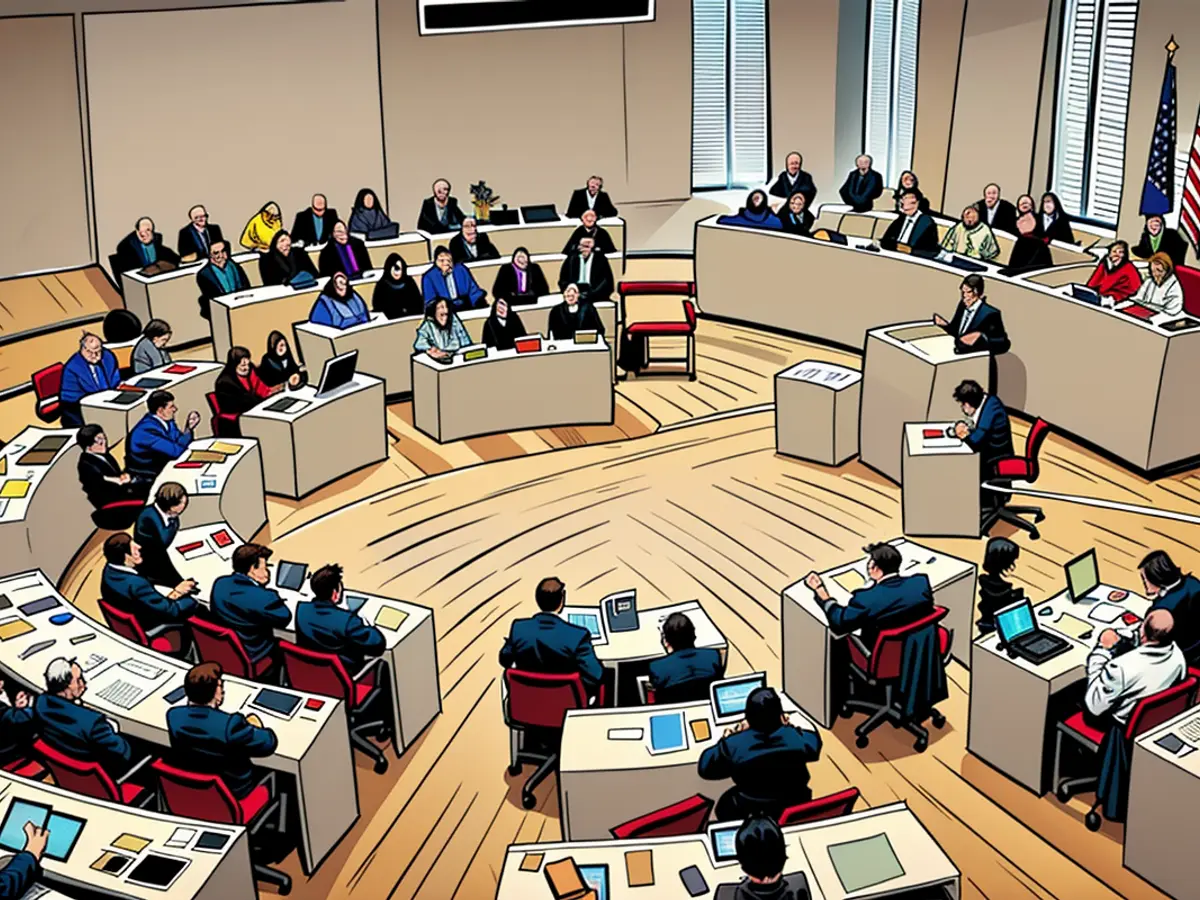Voting Process - Woidke criticizes EU election campaign: a barrier to AfD.
Dietmar Woidke, Brandenburg's Minister President, voiced his disapproval of the European election campaign, including his own party. He shared his frustration in Potsdam on Tuesday, adding, "I'm so angry - now I can finally say it publicly - about the entire European election campaign." Without naming a specific party, Woidke suggested the need for a critical evaluation at the federal level.
Woidke, the leader of the SPD in Brandenburg, was hopeful about his party's performance in the state election in September. "A state election is a completely different ballgame," he said. "The stakes are different and involve different people." Therefore, "the September 22 state election will provide different results." After winning the European and municipal elections on Sunday, the AfD, a right-wing extremist-suspected political force, secured its first victories in both levels.
Despite the setbacks, all major political parties in the Brandenburg state parliament believe that maintaining a wall against the AfD is crucial. Benjamin Raschke, the Green faction leader, said, "The task is still for all democratic parties to maintain this wall." SPD faction leader Daniel Keller expressed a similar sentiment, saying, "There will be no cooperation with the AfD."
The Left faction leader, Sebastian Walter, also echoed the same notion. "There's no possibility of cooperating with the AfD as they are against democracy," Walter stated. However, he acknowledged the AfD's ability to address existing concerns. "But they don't have any proper solutions," he added.
Steven Bretz, the parliamentary manager of the CDU faction, emphasized his party's stance on the AfD. "Our position regarding the AfD is very clear," he affirmed. Peter Vida, head of the Free Voters group, kept the same view. "Our position of separation has always been clear," Vida said.
Hans-Christoph Berndt, the AfD faction leader, requested on Monday for other parties to tear down their walls. Additionally, he demanded the AfD should be granted the role of chair in district councils and city councils, given their position as the strongest force. Keller, the leader of the SPD faction, replied, "There's no automaticity that it's the strongest force."
The results of the European election placed the AfD in front with 27.5% of the votes, surpassing the CDU's 18.4%, the BSW (New Left Alliance) at 13.8%, and the SPD, which gained 13.1%. In the municipal elections, the AfD secured the lead with 25.7% of the votes, with the CDU trailing at 19.3% and the SPD garnering 16.6%.
Read also:
Woidke's criticism of the European election campaign extends beyond his own party, implying a need for reflection at the federal level. The SPD, led by Woidke in Brandenburg, aims for better results in the upcoming state election. In contrast, the AfD, a controversial political force, celebrated its first victories in both European and municipal elections.
Maintaining a wall against the AfD is paramount for all major parties in the Brandenburg state parliament. Green faction leader Benjamin Raschke also advocated for this approach, while SPD faction leader Daniel Keller ruled out cooperation with the AfD. Even the Left faction leader Sebastian Walter agreed that the AfD's stance against democracy precludes cooperation, but he recognized their ability to address concerns.
Parliamentary managers of the CDU and Free Voters groups maintain clear positions of separation towards the AfD. AfD faction leader Hans-Christoph Berndt, however, advocated for the removal of walls and the AfD's appointment to chair positions in district and city councils due to their position as the strongest force.
Reports reveal that the AfD secured the most votes in both the European and municipal elections, with 27.5% and 25.7% of the votes respectively. In contrast, the CDU and SPD performed less favorably, garnering 18.4% and 19.3% and 16.6% of the votes respectively in the municipal elections.
The victory of the far-right AfD has sparked headlines in various news outlets, such as the Daily Mirror, which has covered the implications of this shift in political power. The aftermath of these elections has sparked debates about cooperation, walls, and the perceived threat to democratic values in Germany.








